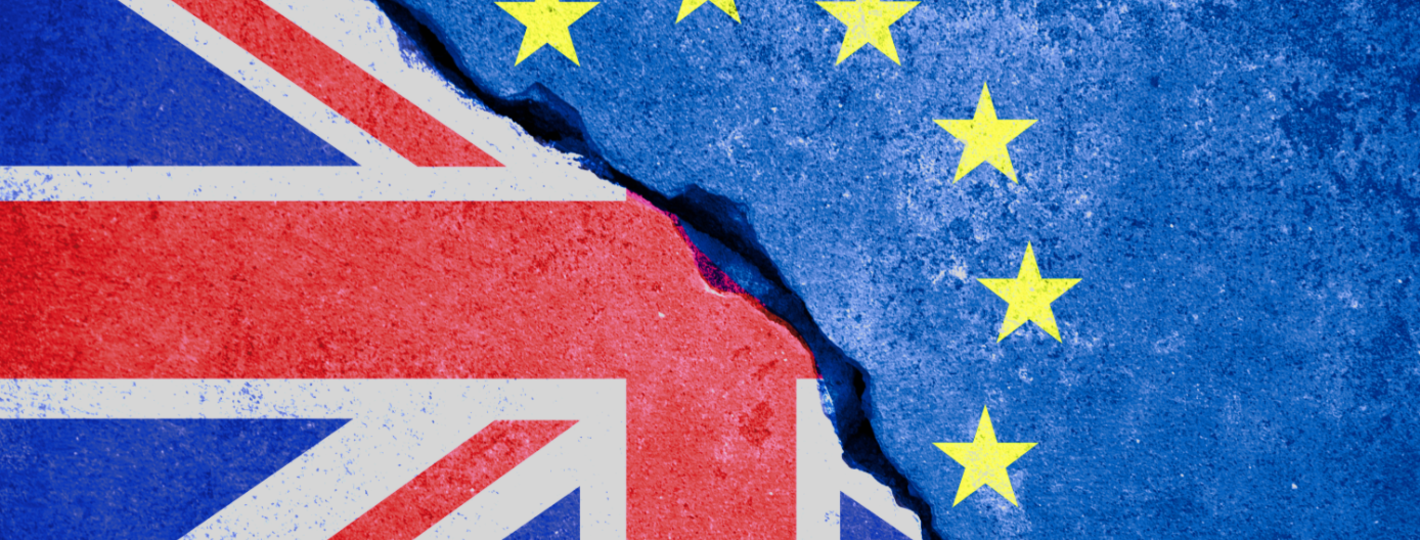
On 31 December 2020 the Brexit transition period will come to an end and Brexit will become a fact. In recent weeks we have received numerous questions about what this means in practice, and specifically from an administrative perspective. Some of the main questions about Brexit are presented below.
1. Brexit: what is changing on 1 January 2021?
We are currently in a transition period, which runs until 31 December 2020. During this period the United Kingdom (UK) has to comply with all EU laws and regulations, including the VAT Directive. This means that, until 31 December 2020, transactions with the UK are still intra-Community transactions (zero-rated intra-Community supplies). From 1 January 2021 transactions with the UK will be treated in the same way as import/export transactions with third countries. That means the zero rate for exports will apply to exports to the UK. In the case of imports, goods will have to pass through customs and import VAT will be payable.
2. What do I need to take into account for bookkeeping purposes?
From 1 January 2021 import and export transactions with the UK must be entered under the VAT codes for imports and exports. On your VAT return import and/or export transactions should be entered under sections 4a and 3a respectively (instead of 4b and 3b, which you are currently used to using for intra-Community transactions).
3. How do I handle services purchased from or sold to the UK?
In the case of B2B services a service is taxed where the customer of the service is based. That means a service provided to a business in the UK is taxed in the UK. As the UK will no longer be part of the EU, you should not include VAT on the invoice and instead state ‘out of scope EU VAT’. Do not include the transaction on your VAT return.
If you purchase a service from the UK, the expectation is that no UK VAT will be payable and a form of VAT reverse charging will apply. You will then have to pay VAT on this service in the Netherlands. You should enter the transaction under section 4a of your VAT return.
As all kinds of exceptions apply to VAT in relation to the trade in services, always consult your account manager to ensure you apply the correct VAT treatment.
4. How do I arrange exports of goods to the UK?
It is not advisable to arrange the export of goods yourself. Engage the services of a freight forwarder. These service providers are familiar with all the rules, aware of the right customs channels and will process the export efficiently.
Please note: from 1 October 2020 it is no longer possible for a foreign party to export goods from the Netherlands. The customer cannot therefore arrange the export himself (e.g. in the case of ex works incoterms). That means the export has to be arranged by the selling party, as a Dutch party has to be named as the exporter on the export documentation. You therefore need to ensure that the incoterms (delivery conditions) are correctly agreed in the purchase agreement to avoid an unexpected need to account for VAT.
5. I have received letters from the Tax and Customs Administration recommending that I apply for an Article 23 permit. What is that?
If you will be importing goods from the UK in the future, you will need to pay import VAT to the customs authorities. You will only be able to claim back this VAT on your VAT return, which means it will be a number of months before you get the VAT back. If you hold an Article 23 permit, you can defer the import VAT owed and pay it when you file your VAT return. That means you do not need to pay it to the customs authorities in advance. This will therefore benefit your cashflow! Please note that the above depends on the extent to which your turnover is made up of turnover that is subject to VAT.
Does this also apply to services? No, import VAT is only payable on goods transactions. Different rules apply to the trade in services (see question 3). One of the conditions that applies to an Article 23 permit is that you import goods on a regular basis.
6. How should I handle goods that I supply after 1 January 2021, but for which the invoice is issued in 2020?
If the shipment or transport started before 1 January 2021, the VAT rules for the period before 1 January 2021 apply and it is therefore a question of an intra-Community sale within the EU (3b - intra-Community supply). If the goods were sent after 1 January 2021, invoicing must take place in accordance with the new VAT rules – in this case applying the zero rate for exports (3a - sales outside EU).
7. How should I handle goods that I supply before 1 January 2021, but for which the invoice is not issued until 2021?
Such supplies must in all cases be invoiced with the VAT applicable to sales within the EU (3b - intra-Community supply).
However, it is recommended that all supplies sent to the UK in 2020 are also invoiced in 2020.
Do you have any questions? If so, please contact one of the specialists from our International Business team.
